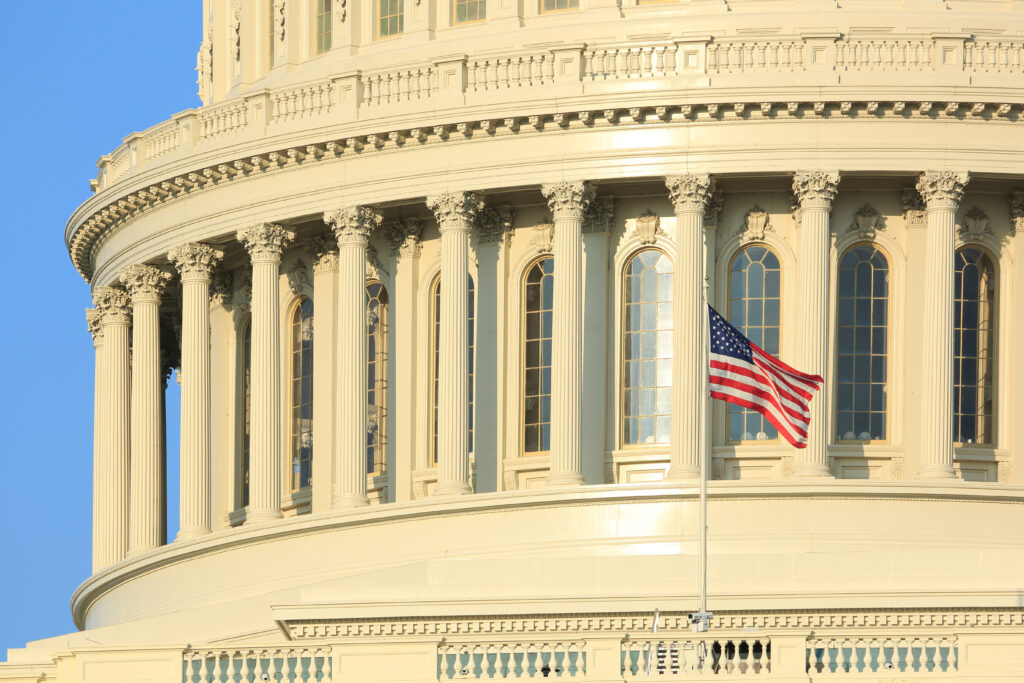
After more than 40 years of operation, DTVE is closing its doors and our website will no longer be updated daily. Thank you for all of your support.
Fubo takes fight against sports streaming JV to US Congress

Source: Alamy.com
Fubo has stepped up its fight over the planned sport streaming JV by market leaders Warner Bros. Discovery, Disney’s ESPN and Fox. The rival streamer along with seven other co-signers have sent a joint letter to the US congress urging committee members to launch an inquiry into the creation of the sport streaming powerhouse.
The letter was signed by operators Fubo, DISH Networks, DIRECTV, Newsmax, along with public interest groups, Sports Fans Coalition, American Economic Liberties Project, Electronic Frontier Foundation and Open Markets Institute.
The companies cited in the letter that the JV “will control approximately 55% of all live sports (regional and national), in addition to the trio, “controlling 80% of all national live sports.”
“We cannot think of any scenario in the history of the United States where consumer interests have been served when such an important industry – here, access to live sports – is effectively controlled by three programming giants which decided to combine forces instead of competing against each other,” it reads.
The sports streaming giant was announced in February, with plans to launch this autumn ahead of the highly-watched US NFL season. It will host a range content from major sport leagues and competitions, including NFL, NBA, WNBA, MLB, NHL, PGA Tour, PGA Championship, The Masters, Wimbledon, US Open, Australian Open, UFC, Formula 1, Nascar, FIFA World Cup, LaLiga and Bundesliga. It will also provide users access to all three companies’ linear sports channels.
The former Apple and Hulu exec Pete Distad has since been appointed as chief executive officer of unnamed streamer but dubbed ‘Spulu’ by the press.
In the letter, the group accused the rival companies of enforcing “anticompetitive” practices and placing “inflationary contract restrictions” on distributors. They claim the contract restrictions imposed by the content providers, “prohibit competing distributors from offering consumers their own “skinny,” live sports bundle”
Fubo has been vocal about its criticism of the joint venture and the founders, describing them as the “sports cartel”. It alleges the JV will destroy competition and inflate prices for consumers. In February the company filed a lawsuit against the partners of the planned streamer, with the preliminary injunction hearing to take place on August 7.
This week Fubo also dropped all WBD networks as part of its channel line-up this week, including Discovery and TNT Sports, following a dispute with WBD over licensing fees.
Congressional Letter
In the letter, the group goes on to say, “the JV will eventually dominate the distribution market for live sports and will drive out competition, leaving consumers captive to the JV for live sports – unless Congress and regulators intervene. When one vertically integrated company has the power and incentive to drive out its competitors – as this JV will – policymakers have previously stepped in to protect competition and consumers.”
“When one vertically integrated company has the power and incentive to drive out its competitors – as this JV will – policymakers have previously stepped in to protect competition and consumers. For example, in the 1992 Cable Act, Congress enacted new program access rules that prevented vertically integrated cable operators from discriminating against new entrants in the pay-TV business, namely the then-nascent satellite TV providers trying to compete with cable. We are at the same inflection point now,” they added.
“The JV partners demand that their competitors offer “big fat bundles” of programming (as described by Disney’s CEO) that include many unwanted but expensive channels, while their own JV service offers a much skinnier package consisting only of “must have” sports channels. Americans love their live sports and entertainment, and they expect Congress to ensure competition and choice in accessing these shows. We thus urge you and your colleagues to hold hearings as soon as possible on the future of pay TV.”


